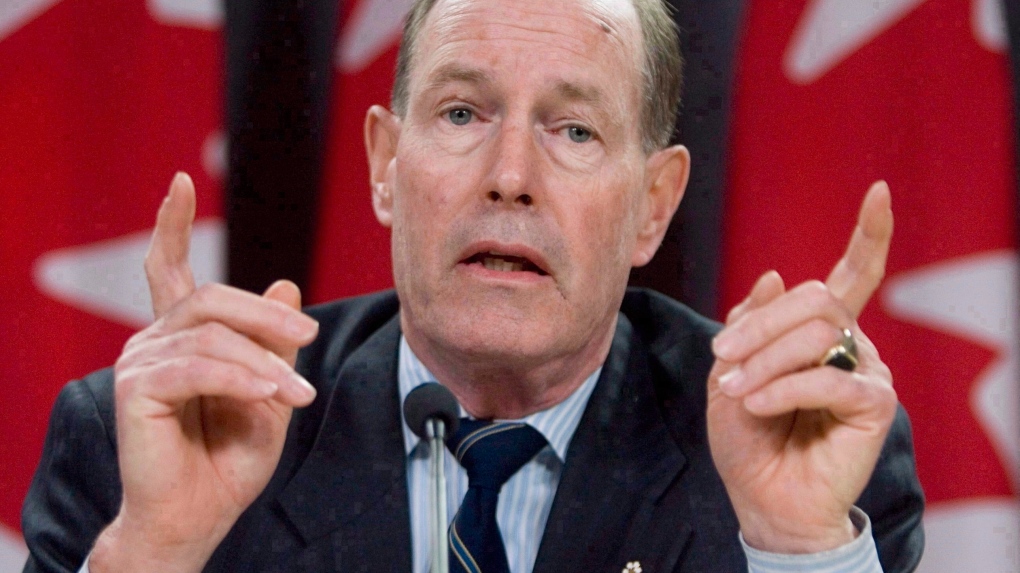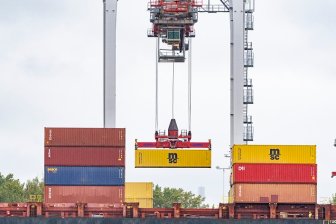News
Canada announces another military aid package for Ukraine as Russia presses air attacks
|
|
As Ukraine struggles to fend off a series of punishing Russian air attacks, Canada is sending the embattled eastern European country more supplies — everything from munitions to mittens — Defence Minister Anita Anand announced Wednesday.
Just over $15.2 million in howitzer ammunition and $15 million in winter clothing make up the bulk of the latest military assistance package Anand announced as she sat down with her NATO counterparts in Brussels.
Canada also will provide another $15.3 million worth of the high-tech cameras the Ukrainians have been using on their drones, along with more satellite communication services.
The overall package is worth $47 million.
Anand’s statement builds on an announcement earlier this week that Canada is sending 40 combat engineers to participate in a training mission in Poland. They’ll be instructing their Ukrainian counterparts on the use of high-tech detection equipment.


In a letter early last month, Ukraine’s defence minister, Oleksii Reznikov, asked Canada for winter clothing. He also asked for more armoured vehicles and howitzers, in addition to what the Liberal government already has committed.
Anand defended the decision to not send more vehicles and artillery — equipment that would have to be taken out of the Canadian Army’s existing stocks and inventory chains.
“We are assisting with military equipment as I’ve announced today. We are assisting with training as I’ve just mentioned, and we are assisting with transportation from our hub in Prestwick, Scotland,” Anand said. She was referring to the C-130J military cargo planes that have been transporting donated allied equipment to the border with Ukraine.
The Liberal government set aside $500 million in the spring budget for military aid to Ukraine. That pot of money has since been exhausted — mostly through the purchase of 39 brand-new armoured support vehicles, a handful of which are in the process of being delivered now.
The meeting of NATO defence ministers in Brussels comes against the backdrop of Moscow’s stepped-up air campaign in Ukraine. Russia has lobbed dozens of cruise missiles and Iranian-made drones at critical infrastructure across the country.
Both the United States and Germany are in the process of delivering modern short- and medium-range air defence systems. NATO Secretary General Jens Stoltenberg made it clear that more needs to be done.
“Ukraine is a big country, many cities, so we need to scale up to be able to help Ukraine defend even more cities and more territory against horrific Russian attacks against their civilian populations,” he said.
At least 26 people have died in such attacks in Ukraine since Monday. Germany recently announced it had sent the first of four promised IRIS-T SLM air defence systems.
The United States said on Tuesday that it had approved shipment of eight National Advanced Surface-to-Air Missile Systems (NASAMS).Two are expected to be delivered soon and six more are being sent over a longer timeframe, a senior White House official said Tuesday.
The Canadian Army has no air defence system to donate even if it wanted to, and its stocks of other equipment are equally strained, said a defence expert.
“I think we’ve have effectively exhausted all of the relatively easy and larger quantity types of donations we could make several months ago and now it’s a question of incrementally doing what we can and waiting for some of our own shelves to get restocked,” said Dave Perry, vice president of the Canadian Global Affairs Institute, an Ottawa-based think-tank that occasionally has had events sponsored by major defence contractors.
A reluctance to part with more equipment is gripping an increasing number of Ukraine’s allies — who worry about their own capabilities should the West get dragged into the war with Moscow.
For some, it speaks to the need for the defence industry to ramp up production to a so-called wartime footing — something NATO ministers also wrestled with on Wednesday.
News
Freeland 2024 budget 'likely to be the worst' in years: Dodge – CTV News


Without having seen it, former Bank of Canada governor David Dodge believes that Tuesday’s 2024 federal budget from Deputy Prime Minister and Finance Minister Chrystia Freeland is “likely to be the worst budget” in decades.
“I think this is likely to be the worst budget since the [then-finance minister Allan] MacEachen budget of 1982, in the sense of pointing us in the wrong direction as to how we go about raising the incomes of Canadians and actually making Canadians feel better over the medium term,” Dodge said in an interview on CTV News Channel’s Power Play with Vassy Kapelos.
In a time of high interest rates and inflation, the 1982-83 federal budget, under then-prime minister Pierre Elliott Trudeau, became the object of political fury over spending, taxation, and wage restraint measures within it.
Dodge, who was governor from 2001 to 2008, was referencing the strong indications that in order to help finance the nearly $40 billion in pre-announced new spending without raising the deficit, the federal government may impose some form of individual wealth tax or excess profit tax on wealthy corporations.
Freeland will present the budget in the House of Commons on Tuesday afternoon, vowing a plan centred on “generational fairness.”
“Something doesn’t add up. I think there’s a big question of how much of all that promised spending is going to be booked into this year and next year, and how much is going to be deferred?” Dodge said.
“I think there is a very real possibility that they’ll do exactly the wrong thing and tax the very folks and the very corporations that are going to make the investments that will actually raise income over time.”
His concern is that wealth taxes would slow growth, and his preference would be for the federal government to “increase saving” rather than increase taxes.
In the interview, Dodge also expressed doubt about the efficacy of the Liberals’ plans aimed at addressing the supply side of Canada’s housing crisis.
On Monday, while addressing a largely business-centric crowd that’s calling on the government to spur economic growth and not impose new taxes that could deter investors, Prime Minister Justin Trudeau made no mention of any wealth-targeting plans that may be afoot.
The government’s position is that the country is at a “pivotal moment” that requires urgent investment, including in areas of affordability concerning millennial and Generation Z voters, such as housing and jobs.
“Millennials and Gen Z now make up the majority of Canada’s labour force. They are our economy … They now feel like middle class stability is out of reach. We need to meet this moment, because that can’t be allowed to happen,” Trudeau said. “The economy is only as strong as it is optimistic.”
You can watch the full interview with David Dodge in the video player at the top of this article
News
Leave Canada or sue? Auto theft victims consider their options as cases surge – Global News
As the Greater Toronto Area confronts an auto theft crisis, some residents are considering bold – or arguably radical – action.
Kamran Hussain, who moved to Canada from India on an international student visa in 2017 and has completed the arduous process of becoming a permanent resident, said he has thought about leaving the country after he woke up on the morning of Jan. 11 to find nothing but the shattered glass of his car window on his east Toronto driveway.
“I came out and the car was gone,” said Hussain, referring to his 2022 Toyota Highlander.
For the 30-year-old telecom worker, the already complicated task of becoming a Canadian permanent resident had been made harder by the pandemic, when various bureaucratic steps were backed up. But he said he had chosen to make a home in Canada because he saw it as safe.
That’s a reputation he now feels has been cast in doubt by the auto theft epidemic.
“I’m looking for options,” he said when asked if he was seriously considering leaving Canada.
“I left my country because of the instability there,” he said. “But now, with the growing issues that are happening here in terms of safety, the thefts, the break-ins and rising crime, it is a big concern for me.”
Hussain’s experience with vehicle theft did not involve a risk to his personal security. The thieves never entered his home.
But he said he has been jarred by reports of criminals breaking into homes with weapons and demanding keys to vehicles.
The surge in auto thefts has led to rises in home invasions, violent robberies and gun violence throughout the GTA, according to Toronto police.
Ontario Provincial Police have described the province’s current rate of car thefts as “unprecedented,” fuelled in part by demand for luxury vehicles in foreign markets.

The Équité Association, an anti-crime organization funded by insurance companies, has said that for the first time ever Ontario exceeded $1 billion in auto theft claims last year.
Amid mounting public frustration, Prime Minister Justin Trudeau convened a national auto theft summit in February, urging closer collaboration between law enforcement, border services, the insurance industry and automakers.
Laura Paquette, another auto theft victim, is trying to focus more attention on the role of car companies: specifically, she has been wondering if automakers can be sued for making cars that she argues are too easy to steal.
At 4 a.m. on Jan. 10, she said she heard her Toyota SUV beep, the familiar sound of it being unlocked.
More on Canada
“I was in a total shock,” she said in a recent interview. “I woke up my partner and I’m like, ‘somebody is stealing my truck.’ And we ran downstairs and it was gone.”
The 52-year-old social worker described the ordeal that followed as a “nightmare.”
Police found her car, but it required substantial repairs.
In the meantime, she was out $2,000 in monthly rental costs for a replacement vehicle because her insurance only covered $1,000. She said she was also still making her $700 monthly payment on the stolen car, in addition to $230 per month for insurance.
Reflecting on what she endured, and how seemingly straightforward it was for thieves to take her vehicle, she called for automakers to face “accountability.”
“If I invested money in a security door for my house, and if everybody with a blank key fob could come into my house, I would kind of feel defrauded, right?” she said. “That’s how I feel about my vehicle.”
Paquette said she is discussing her legal options.
“Why is it on the consumer to protect ourselves?” she said. “Vehicles are big investments, so why are they so easily stolen? Why do I have to go to extremes to prevent that?”

In the weeks following the national summit on auto theft, law enforcement agencies have sought to highlight a series of successes.
Those include a joint OPP and Canada Border Services Agency operation that recovered 598 stolen vehicles destined for export at the Port of Montreal, Canada’s gateway to the foreign stolen vehicle market. The vehicles had an estimated value of $35.5 million dollars.
OPP said 75 per cent of the vehicles recovered were stolen in Ontario, where the provincial government announced last month that it planned to purchase four new police helicopters, at a cost of about $36 million, in part to fight the auto-theft crisis.
Toronto police and Bryan Gast, vice-president of investigative services at the Équité Association, have linked the rising problem to organized crime.
Gast noted that auto theft rates had been ticking up annually prior to the COVID-19 pandemic, but he said the supply chain issues triggered by the associated global shutdown made both new and used vehicles harder to find.
“Organized crime leverage that problem and are profiting from it,” he said. “That’s when the numbers have increased,” he added, noting that insurance claim costs related to auto theft in Ontario have risen by 319 per cent since 2020.
Toronto police Staff Supt. Pauline Gray has said that auto theft is now a top three revenue generator for organized crime groups.
Gast praised the new levels of co-ordination launched in response to the crisis but said that ultimately only one metric will matter in assessing its success.
“The goal will be to stop that upward trend to at least a flat line and then a decline,” he said.
“The success shows in the results: the number of vehicles in Canada that are being stolen, that’ll give us an indication of how well the collaborative plan is working.”
News
When Facebook blocks news, studies show the political risks that follow – Reuters
[unable to retrieve full-text content]
When Facebook blocks news, studies show the political risks that follow Reuters




Source link
-
Media15 hours ago
DJT Stock Plunges After Trump Media Files to Issue Shares
-
Business14 hours ago
FFAW, ASP Pleased With Resumption of Crab Fishery – VOCM
-
Media14 hours ago
Marjorie Taylor Greene won’t say what happened to her Trump Media stock
-



 Tech22 hours ago
Tech22 hours agoHow funny? Australian researchers use AI to generate cartoon captions – Digital Journal
-
Business15 hours ago
Javier Blas 10 Things Oil Traders Need to Know About Iran's Attack on Israel – OilPrice.com
-
Media13 hours ago
Trump Media stock slides again to bring it nearly 60% below its peak as euphoria fades – National Post
-
Business20 hours ago
A government mortgage policy that makes sense – with one glaring question – The Globe and Mail
-



 Sports24 hours ago
Sports24 hours agoMasters champion Scottie Scheffler sends emotional message to pregnant wife after sensational Augusta triumph – GB News










